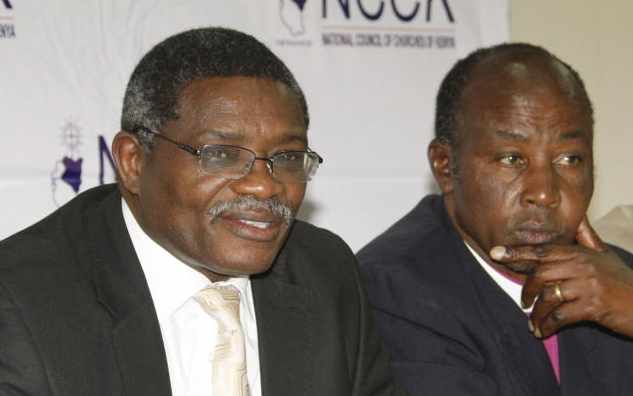
National Council of Churches of Kenya (NCCK) Secretary General Rev Canon Peter Karanja (left) flanked by Bishop Koyo Joshua address a press conference where they called upon NASA and Jubilee parties to drop their hard-line positions regarding the management of of the fresh presidential elections within the timelines set by the constitution in line with the Supreme Court ruling in 2017. [File, Standard]
A struggling real estate portfolio and a series of bad debts may be at the centre of the ongoing leadership wrangles at the National Council of Churches of Kenya (NCCK), the Sunday Standard can now reveal.